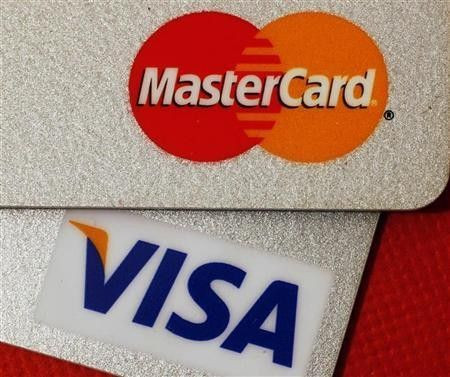European Union Seeks To Cut And Cap Credit Card Fees Across Europe

In a move likely to spark opposition, European Union officials unveiled a plan on Wednesday to cut the hidden fees that major credit cards including MasterCard Inc. (NYSE:MA) and Visa Inc. (NYSE:V) levy on consumers.
The measures take aim at lowering "interchange" fees, which are levied whenever a consumer signs a credit card receipt or uses his or her PIN to make a purchase. The fees are usually paid by businesses to banks, but businesses pass these fees along to consumers.
“The proposed changes to interchange fees will remove an important barrier between national payment markets and finally put an end to the unjustified high level of these fees,” internal market and services commissioner Michel Barnier said in a statement.
The EU’s chief of competition Joaquin Almunia noted that many consumers are generally unaware of the fees and added that credit card companies even encourage customers to use the cards with the highest fees, through their rewards programs.
The European Commission proposal caps interchange fees to a maximum of 0.3 percent of a transaction’s value.
Currently, companies including MasterCard post their interchange fees, which vary by country, online.
In the UK, for instance, using a credit card can involve a 0.8 percent interchange charge.
The EU estimates that the payment processing market in the EU costs 130 billion euros per year ($172.2 billion), or more than 1 percent of EU gross domestic product.
MasterCard and other credit card companies have engaged in protracted lobbying to prevent the move.
MasterCard Europe President Javier Perez told the New York Times that the cap “will actually harm and inconvenience consumers and small merchants” and will “hinder competition and innovation in the European payments landscape.”
The proposal also bans surcharges for the use of debit and credit cards sometimes charged when people buy airline tickets. The U.S. already regulates interchange fees.
Although retailers have welcomed the move, banks and card companies have warned that consumers will end up paying higher annual fees simply to use electronic cards, the BBC reports.
© Copyright IBTimes 2025. All rights reserved.






















